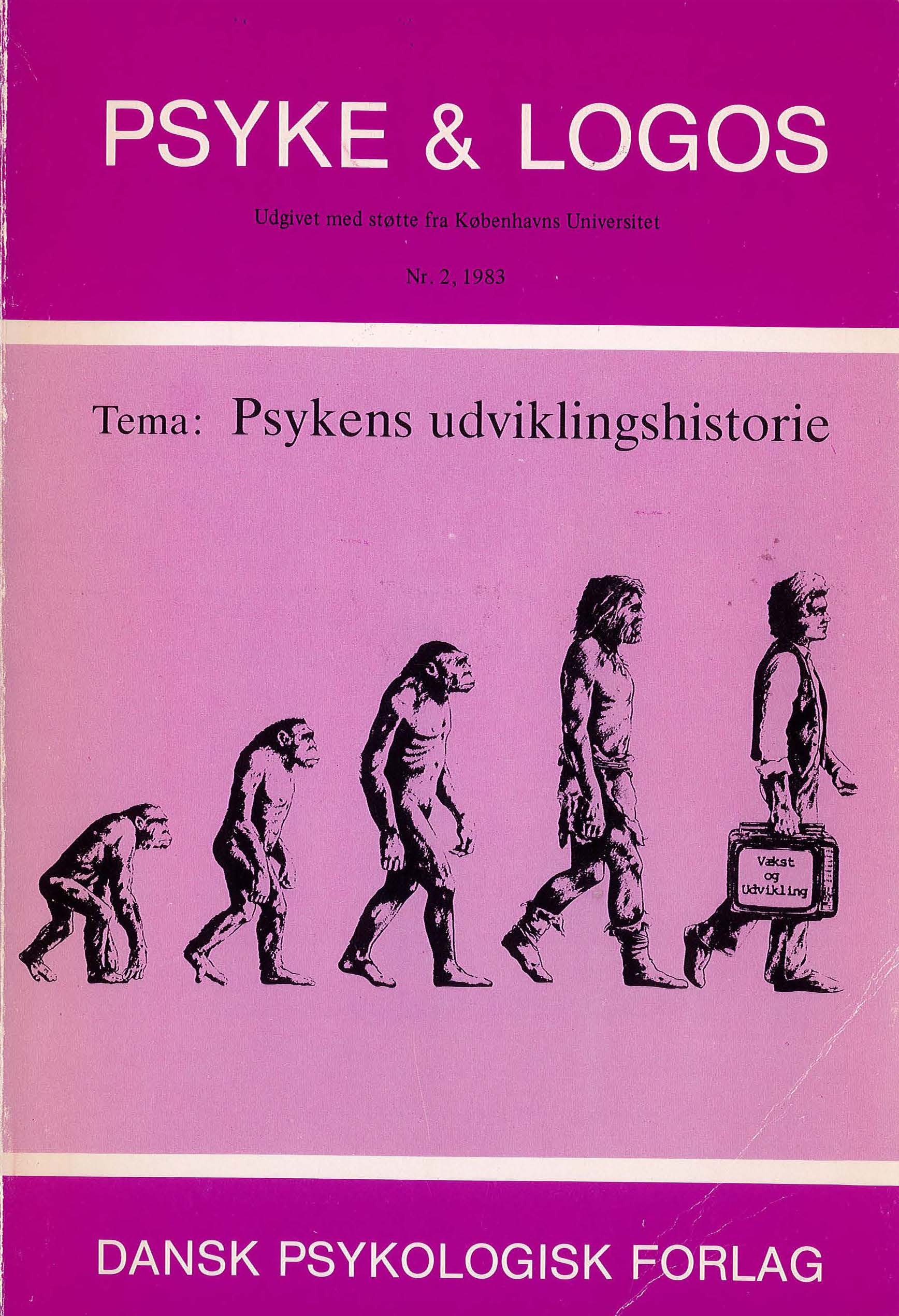Erindringens natur og historie
DOI:
https://doi.org/10.7146/pl.v4i2.135975Abstract
This paper first proposes a classification of individuals' knowledge which is an extension of Tulving's episodic-semantic distinction. Recollected knowledge is episodic, Le. it is both situational (it refers to a specific situation in space and time) and personal (it refers
to a specific person, viz., the subject himself). Second, the paper rejects the common assumption that episodic knowledge - and, by implication, recollection - are ontogenetically as well phylogenetically primary forms of knowing. On the contrary, it is claimed that
both the coding and the recollection of experiences as being situational and personal episodes presuppose schematic knowledge in relation to which the place, time, and subject of the episodes can be specified. Finally, an account of the historical development of spatial, temporal, and subject (or se!O schemas is sketched, based on the assumed requirements of material and social processes of subsistence in different historical epochs. Schemas are generally seen as developing from procedural to declarative and from socially centered to socially decentered forms.
Downloads
Published
How to Cite
Issue
Section
License
Ophavsret er tidsskriftets og forfatternes. Det er gældende praksis, at artikler publiceret i Psyke & Logos, som efterfølgende oversættes til andet sprog, af forfatteren frit kan publiceres i internationale tidsskrifter, dog således at det ved reference fremgår, at den oversatte artikel har et forlæg i en dansksproget version i Psyke & Logos. Artikler kan frit deles og linkes til på forsknings- og undervisningsnetværk (så som Blackboard). Link foretrækkes, fordi det giver oplysning om brug af tidsskriftets artikler.




